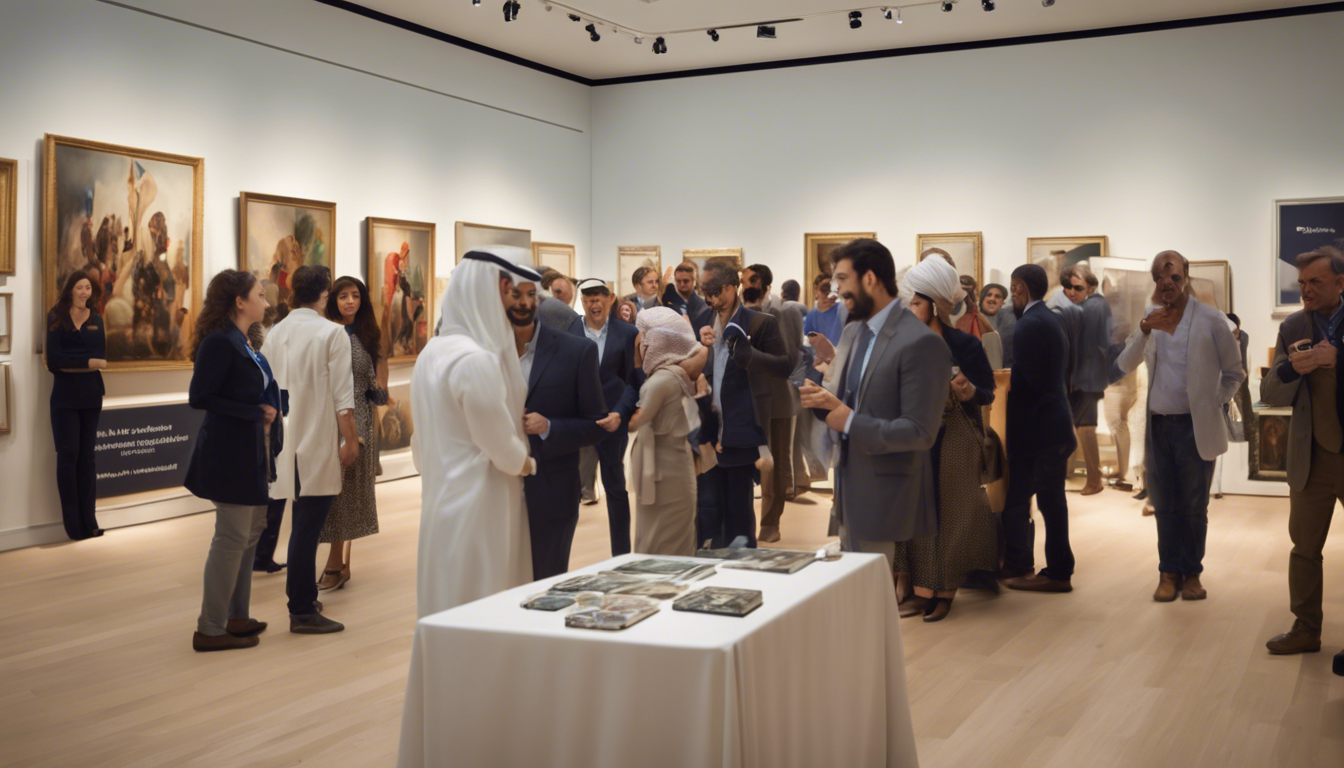The art world witnessed a landmark event when the Abu Dhabi Investment Fund (ADIF) acquired a significant stake in Sotheby’s, one of the oldest and most prestigious auction houses globally. This move signifies a strategic expansion of Middle Eastern wealth into Western cultural assets, showcasing a blend of financial strategy and cultural engagement.
Sotheby’s, established in 1744, has been synonymous with luxury and high-profile auctions. Known for handling sales of rare art, historic artifacts, and high-value collectibles, its acquisition by ADIF, one of the world’s most influential sovereign wealth funds, raises pertinent questions about the future of art and heritage.
One of the core benefits of this acquisition is the potential infusion of capital into Sotheby’s. With the financial backing of ADIF, Sotheby’s can expand its global reach and enhance technological advancements, particularly in online auctions and digital presence, which have become crucial in the post-pandemic era.
Furthermore, Abu Dhabi’s position as a burgeoning hub for art and culture in the Middle East can be symbiotically beneficial. The investment could pave the way for more prominent exhibitions and exchanges between the West and the Middle East, potentially leading to a richer, more diverse art scene.
However, this relationship comes with its complexities. Critics argue that the incursion of significant investment funds into cultural domains risks commodifying and potentially altering the intrinsic value of art. They fear that the commercial priorities of a wealth fund might override the preservationist and educational priorities that institutions like Sotheby’s traditionally maintain.
Historically, similar acquisitions have prompted debates about cultural colonialism and the appropriation of cultural assets. For instance, when the Louvre partnered with Abu Dhabi to open a museum in the UAE, there were concerns about cultural dilution and the motivations behind exporting art and heritage outside its geographical origins.
Experts in cultural economics suggest that while the infusion of capital can drive growth, it’s imperative that such growth is balanced with ethical stewardship of art. Dr. Lily Frey, a cultural historian, mentions, ‘Art should transcend financial metrics. While investments like these can bring necessary funds, they must not detract from the stewardship responsibilities towards art and culture.’
Politically, the investment could be seen as a soft power strategy, enhancing the cultural footprint of the UAE on a global scale. This aligns with Abu Dhabi’s broader ambitions to be recognized as a global leader in both financial and cultural sectors.
Another concern is market influence. With significant financial backing, Sotheby’s might gain an undue advantage over competitors, potentially leading to monopolistic behaviors in the art auction world. This could stifle competition and lead to higher prices, affecting collectors and ultimately the accessibility of art.
In conclusion, while the strategic acquisition of a stake in Sotheby’s by the Abu Dhabi Investment Fund presents several advantages like financial empowerment and cultural exchange, it also raises complex issues concerning cultural commodification, ethical stewardship, and market competition. It reflects a broader trend of geopolitical influences reshaping the cultural and economic landscapes. As the partnership matures, it will be critical to monitor these dynamics to ensure that while financial and cultural objectives are met, they do not come at the expense of the art world’s integrity and diversity.
You may also like
Rising Trends in Early Retirement in Italy
In recent years, Italy has seen a notable increase in the number of individuals opting for early retirement. This article explores the phenomenon, highlighting key data from the Italian National Institute of Social Security (INPS), alongside expert opinions and historical context.
The growing weight of compulsory spending on the budgets of Italian families
The growing financial strain on Italian families caused by mandatory expenses is scrutinized in this deep dive, with special attention to recent data provided by Confcommercio.
Stock Exchanges around the world are increasingly integrating Artificial Intelligence
Stock exchanges around the world are increasingly integrating Artificial Intelligence (AI) to enhance operational efficiency, predict market trends, and offer better services. This article explores the current applications, future strategies, and investment trends related to AI in stock exchanges.
The Chaos of Real Estate Sales after Superbonus
The introduction of the Superbonus incentive in Italy aimed to revitalize the construction sector but has inadvertently created tax complexities surrounding property gains, affecting real estate transactions. This article explores the current challenges and possible solutions to streamline property sales in Italy.
